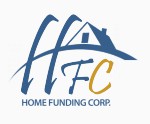More borrowers will struggle to pay off home equity loans
Friday, December 13, 2013 -
Article by:
Diana Olick - Home Funding Corporation -
![]()
As home prices rise and the economy recovers, fewer borrowers are falling behind on their mortgages, or at least on their primary mortgages.
During the housing boom, millions of Americans took advantage of equity gains by pulling money out of their homes through home equity lines of credit (HELOCs). These were largely interest-only loans for 10 years, but that decade is now up for some and coming up for many more. Now, as these loans enter their so-called amortization period--the time when borrowers must start paying down the principal--a growing number can't.
"In the aggregate, the home equity market is experiencing lower delinquencies," said Herb Blecher of Lender Processing Services. "However, among the HELOC population that has already begun amortizing, we are actually seeing an increase in new seriously delinquent loans."Year to date, new problem loan rates--seriously delinquent loans that had been current six months ago--on those that have already begun amortizing are up 11 percent, as opposed to down 33 percent for those that have yet to begin amortizing. Nearly half of all outstanding HELOCs, which are a type of second mortgage, were originated between 2004 and 2006, according to LPS. Most of them had 10-year "draw periods," the time when borrowers could use that line of credit and take cash out of their homes.(Read more: The days of 3.5% 30-year fixed mortgages are over)
Some borrowers may have the option of refinancing the HELOCs, but interest rates are now rising, making that prospect more difficult. Some lenders may reset the draw period for borrowers with good payment histories and good credit, since the bank will want to keep them as customers."For others who have not paid on time or may no longer have the equity to support the higher amortized payment, this is going to be an issue," said Craig Strent of Maryland-based Apex Home Loans. "I believe banks may start to look at some form of case-by-case modification, much of which might be extending the interest-only payment out a little further."Strent sees this as a refinance opportunity, if the borrower can qualify. One option is to roll the HELOC into a new primary, fixed-rate mortgage or into an adjustable rate mortgage.
Taking the sting out of some of this is the fact that home equity has returned for millions of borrowers. Just 11.6 percent of active mortgages are in a negative equity position today, compared with 19 percent in January, according to LPS. Negative equity means the current value of your home is less than the amount you have outstanding on your mortgage.
That rising equity has helped bring foreclosure numbers way down as well. Total foreclosure activity fell 15 percent in November from the previous month, the largest monthly drop since the so-called "robo-signing" scandal halted most foreclosures temporarily, according to RealtyTrac. Newly started foreclosures fell 10 percent to the lowest level since 2005."While some of the decrease in November can be attributed to seasonality, the depth and breadth of the decrease provides strong evidence that we are entering the ninth inning of this foreclosure crisis with the outcome all but guaranteed," said Daren Blomquist, vice president at RealtyTrac.While that is the national picture, some states, particularly those that have judges in the process, are still struggling. Newly started foreclosures rose annually in 15 states, including Pennsylvania (up 233 percent), Delaware (up 104 percent), Maryland (up 74 percent), Oregon (up 38 percent), and Connecticut (up 37 percent).(Read more: The new mortgage landscape: What you need to know)
2014 will undoubtedly be choppier for the foreclosure recovery, as rising interest rates give troubled borrowers fewer options. While mortgage delinquencies should continue to fall, they will do so at the slowest pace in five years, according to TransUnion, a credit information and analysis company."The primary reason for the slowdown will be the pending rise in interest rates, which may hinder home sales while also blocking refinancing as an exit strategy for some mortgage borrowers. Additionally, foreclosure timelines continue to expand in many states, keeping longer vintage delinquencies in the system," said TransUnion's Tim Martin.
Didn't find the answer you wanted? Ask one of your own.
Ask our community a question.
Related Articles
Featured Lenders



